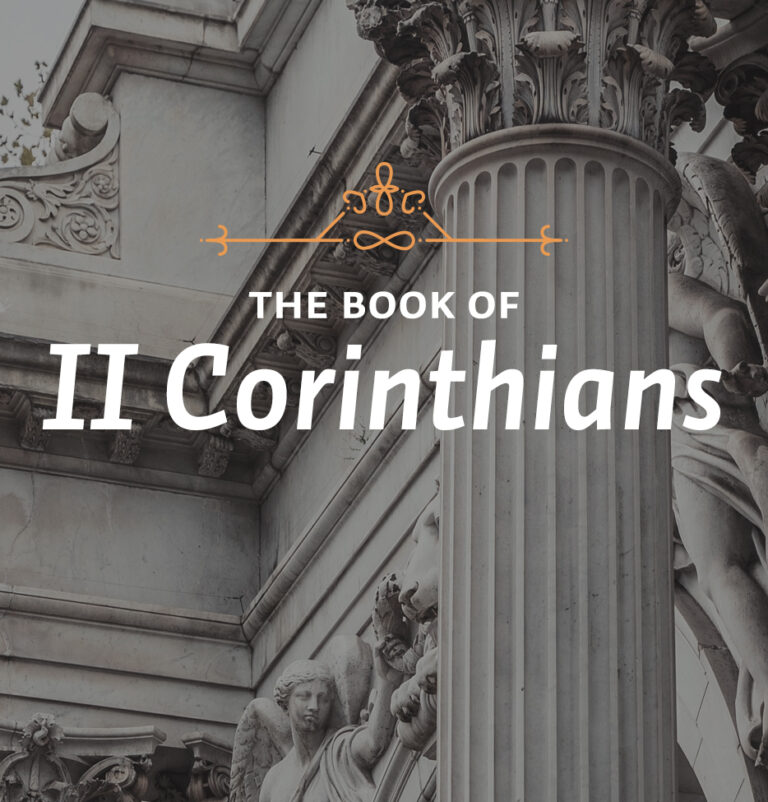
Something Painful This Way Comes — Part One
Something Painful This Way Comes2 Corinthians 1:2-4Theme: Comfort in suffering.This week’s lessons encourage us to better understand and endure hardship.
Lesson

Something Painful This Way Comes2 Corinthians 1:2-4Theme: Comfort in suffering.This week’s lessons encourage us to better understand and endure hardship.
Lesson

Something Painful This Way Comes2 Corinthians 1:2-4Theme: Comfort in suffering.This week’s lessons encourage us to better understand and endure hardship.
Lesson

Something Painful This Way Comes2 Corinthians 1:2-4Theme: Comfort in suffering.This week’s lessons encourage us to better understand and endure hardship.
Lesson

Something Painful This Way Comes2 Corinthians 1:2-4Theme: Comfort in suffering.This week’s lessons encourage us to better understand and endure hardship.
Lesson

Something Painful This Way Comes2 Corinthians 1:2-4Theme: Comfort in suffering.This week’s lessons encourage us to better understand and endure hardship.
Lesson

These Earthly Thorns2 Corinthians 12:1-10Theme: Common Suffering.This week’s lessons teach us that God’s grace is all we need to get through life’s hardships. Lesson

These Earthly Thorns2 Corinthians 12:1-10Theme: Common Suffering.This week’s lessons teach us that God’s grace is all we need to get through life’s hardships. Lesson

These Earthly Thorns2 Corinthians 12:1-10Theme: Common Suffering.This week’s lessons teach us that God’s grace is all we need to get through life’s hardships. Lesson

These Earthly Thorns2 Corinthians 12:1-10Theme: Common Suffering.This week’s lessons teach us that God’s grace is all we need to get through life’s hardships. Lesson

These Earthly Thorns2 Corinthians 12:1-10Theme: Common Suffering.This week’s lessons teach us that God’s grace is all we need to get through life’s hardships. Lesson

Theme: Old Testament Prophecy Fulfilled
In this week’s lessons we learn how the sufferings of the Lord Jesus Christ described in the first part of Psalm 22 turn into a statement of great victory.
Scripture: Psalm 22:22-31
One of the fascinating features of careful Bible study is that we so often come upon statements that are tantalizing but which we cannot fully understand. An example is the well-known statement of Jesus to the Emmaus disciples recorded in Luke 24:27.

Theme: Jesus and His Brothers
In this week’s lessons we learn how the sufferings of the Lord Jesus Christ described in the first part of Psalm 22 turn into a statement of great victory.
Scripture: Psalm 22:22-31
But it is not only by a process of reasoning that we must identify Psalm 22 as a prophecy of Jesus’ death and resurrection. As we study the New Testament, we also find that this is its explicit teaching.

Theme: An Expanding Congregation
In this week’s lessons we learn how the sufferings of the Lord Jesus Christ described in the first part of Psalm 22 turn into a statement of great victory.
Scripture: Psalm 22:22-31
The second half of Psalm 22 is a throbbing, soaring anticipation of the expanding proclamation of the gospel and of the growing church. It is represented in three phases.

Theme: “It Is Finished”
In this week’s lessons we learn how the sufferings of the Lord Jesus Christ described in the first part of Psalm 22 turn into a statement of great victory.
Scripture: Psalm 22:22-31

Theme: “You Shall Be My Witnesses”
In this week’s lessons we learn how the sufferings of the Lord Jesus Christ described in the first part of Psalm 22 turn into a statement of great victory.
Scripture: Psalm 22:22-31

Theme: Prayer for Help in Trouble
In this week’s lessons, we learn from this psalm how to deal with difficulties that come into our lives, knowing that God is our mighty refuge in whom alone we can trust.
Scripture: Psalm 31:1-24
Psalm 31 is longer than most of those immediately preceding it. Only Psalms 18 and 22 are longer. But Psalm 31 has this interesting distinction. As a psalm of trust growing out of an individual lament, “a magnificent psalm of confidence,” it has appealed to many biblical characters.

Theme: An Expression of Trust
In this week’s lessons, we learn from this psalm how to deal with difficulties that come into our lives, knowing that God is our mighty refuge in whom alone we can trust.
Scripture: Psalm 31:1-24

Theme: A Lament
In this week’s lessons, we learn from this psalm how to deal with difficulties that come into our lives, knowing that God is our mighty refuge in whom alone we can trust.
Scripture: Psalm 31:1-24

Theme: Praise to God for His Help
In this week’s lessons, we learn from this psalm how to deal with difficulties that come into our lives, knowing that God is our mighty refuge in whom alone we can trust.
Scripture: Psalm 31:1-24

Theme: The Application
In this week’s lessons, we learn from this psalm how to deal with difficulties that come into our lives, knowing that God is our mighty refuge in whom alone we can trust.
Scripture: Psalm 31:1-24
Yesterday we concluded by looking at the first two contrasts between God’s secret and manifest goodness. Today we begin by considering the last one.

Theme: A Balanced Appraisal
In this week’s lessons we learn how to handle slander and mistreatment in a righteous way, both against ourselves and others.
Scripture: Psalm 35:1-28

Theme: A Three-Part Psalm
In this week’s lessons we learn how to handle slander and mistreatment in a righteous way, both against ourselves and others.
Scripture: Psalm 35:1-28
In yesterday’s study I said that in thinking about these imprecations from David, we need to have a balanced view, recognizing our own sin and frequent hypocrisy.

Theme: David’s Champion
In this week’s lessons we learn how to handle slander and mistreatment in a righteous way, both against ourselves and others.
Scripture: Psalm 35:1-28
This is also the outline of the psalm. Part one (vv. 1-10) develops the second of these two images, the image of the battle. Part two (vv. 11-18) develops the first, the image of a lawsuit. At the end, in part three, both come together (vv. 19-28).

Theme: David’s Advocate
In this week’s lessons we learn how to handle slander and mistreatment in a righteous way, both against ourselves and others.
Scripture: Psalm 35:1-28

Theme: Our Great Adversary
In this week’s lessons we learn how to handle slander and mistreatment in a righteous way, both against ourselves and others.
Scripture: Psalm 35:1-28

Theme: The Historical Setting
In this week’s lessons we learn that when hard times come, we are to wait upon and praise the Lord with expectant hope.
Scripture: Psalm 79:1-13

Theme: When Trouble Comes
In this week’s lessons we learn that when hard times come, we are to wait upon and praise the Lord with expectant hope.
Scripture: Psalm 79:1-13

Theme: How Long?
In this week’s lessons we learn that when hard times come, we are to wait upon and praise the Lord with expectant hope.
Scripture: Psalm 79:1-13

Theme: The Need for Confession
In this week’s lessons we learn that when hard times come, we are to wait upon and praise the Lord with expectant hope.
Scripture: Psalm 79:1-13
We continue looking at the four important questions, confessions or statements in this passage of Psalm 79. Yesterday we looked at the first two, and today we pick up with the second two.

Theme: Looking Ahead with Hope and Confidence
In this week’s lessons we learn that when hard times come, we are to wait upon and praise the Lord with expectant hope.
Scripture: Psalm 79:1-13

Theme: A Psalm for the Hopeless
From this psalm, we see that life does not always have happy endings. Nevertheless, we can trust God in the midst of great sorrow and suffering because of what he tells us about himself in his Word, and that he promises to work in the lives of those whom he loves.
Scripture: Psalm 88:1-18

Theme: A Prayer to the God Who Saves
From this psalm, we see that life does not always have happy endings. Nevertheless, we can trust God in the midst of great sorrow and suffering because of what he tells us about himself in his Word, and that he promises to work in the lives of those whom he loves.
Scripture: Psalm 88:1-18

Theme: Darkness All Around
From this psalm, we see that life does not always have happy endings. Nevertheless, we can trust God in the midst of great sorrow and suffering because of what he tells us about himself in his Word, and that he promises to work in the lives of those whom he loves.
Scripture: Psalm 88:1-18

Theme: When the Light Is Fading
From this psalm, we see that life does not always have happy endings. Nevertheless, we can trust God in the midst of great sorrow and suffering because of what he tells us about himself in his Word, and that he promises to work in the lives of those whom he loves.
Scripture: Psalm 88:1-18

Theme: Trusting to the End
From this psalm, we see that life does not always have happy endings. Nevertheless, we can trust God in the midst of great sorrow and suffering because of what he tells us about himself in his Word, and that he promises to work in the lives of those whom he loves.
Scripture: Psalm 88:1-18

Theme: Fervent Prayer in Great Need
In this week’s lessons, we learn how great suffering should turn us toward God, and then cause our prayers to also include God’s work in the lives of others.
Scripture: Psalm 102:1-28
One of the splendid delusions of the young is that they think they are immortal. No matter how recklessly they drive, no matter how many drugs they take or physical dangers they expose themselves to, they do not believe that anything bad can happen to them.

Theme: When Troubles Abound
In this week’s lessons, we learn how great suffering should turn us toward God, and then cause our prayers to also include God’s work in the lives of others.
Scripture: Psalm 102:1-28

Theme: Resting in God’s Sovereignty
In this week’s lessons, we learn how great suffering should turn us toward God, and then cause our prayers to also include God’s work in the lives of others.
Scripture: Psalm 102:1-28

Theme: Praying for Others
In this week’s lessons, we learn how great suffering should turn us toward God, and then cause our prayers to also include God’s work in the lives of others.
Scripture: Psalm 102:1-28

Theme: Anchored in the Lord Jesus Christ
In this week’s lessons, we learn how great suffering should turn us toward God, and then cause our prayers to also include God’s work in the lives of others.
Scripture: Psalm 102:1-28
Today we continue our look at four separate things for which the psalmist prays.

Theme: When Christians Suffer
This week’s lessons from Psalm 119 show that suffering can bring us closer to God and his Word.
Scripture: Psalm 119:65-88

Theme: God’s Purposes
This week’s lessons from Psalm 119 show that suffering can bring us closer to God and his Word.
Scripture: Psalm 119:65-88

Theme: Blessings of Affliction
This week’s lessons from Psalm 119 show that suffering can bring us closer to God and his Word.
Scripture: Psalm 119:65-88

Theme: What We Learn about God
This week’s lessons from Psalm 119 show that suffering can bring us closer to God and his Word.
Scripture: Psalm 119:65-88

Theme: Holding out Our Hands
This week’s lessons from Psalm 119 show that suffering can bring us closer to God and his Word.
Scripture: Psalm 119:65-88

What is joy? Quite simply, joy is a supernatural delight in God and His goodness. When joy is at work, it transforms our entire outlook on life, even its unhappy parts. Perhaps I can better explain what joy is by contrasting it with happiness, because these are entirely different things. Every Christian attribute has its counterpart in the world. The world has passion; Christians have love. The world strives for security; Christians trust God. The world seeks self-gratification; Christians know peace, even in want. And in the same way, the world seeks happiness while Christians know joy.

In yesterday’s study, we concluded by talking about happiness. On the other hand, joy is quite different. Joy comes directly from God, and is not related to circumstances; and so no circumstances can ever destroy it. Thus if the individual belongs to God and is allowing God to fill him with joy—along with all the other fruits of the Christian life described in Galatians 5:22-23—he will triumph.

The first principle for having Christian joy is that you must be a Christian. I know this seems obvious, but in my experience at least two classes of people need to face this squarely. The first class is composed of those who are not Christians and know it, but who think that Christian fruits can be grown without a Christian life. If you are such a person, you need to recognize that joy is supernatural, and that it’s only given to those who have surrendered their lives to Jesus Christ.

Sin keeps us from God, who is the source of joy. And anxiety also works against it. Instead of experiencing sin and anxiety in his life, the believer in Jesus Christ should experience a life of holiness and peace. And he should realize God’s peace as he submits all aspects of his future to Him. Paul wrote, “Be anxious for nothing, but in everything, by prayer and supplication with thanksgiving, let your requests be made known unto God. And the peace of God, which passeth all understanding, shall keep your hearts and minds through Christ Jesus” (Phil. 4:6-7).

There’s a great deal of unrest in this world, and there will always be unrest for those who do not know Jesus. Apart from Him there is no true peace, no joy, and no real happiness either. But this should never be the case for the Christian. If you are a Christian, you should draw close to God. You should feed on Scripture, and “the God of hope [will] fill you with all joy and peace in believing” (Rom. 15:13).

Paul had been thinking of Rome a long time. He recognized that if the Gospel was to become a world religion—if Christianity was going to expand everywhere, as he understood from the teachings of Jesus Christ it was going to do—then the time would come when it would have to be proclaimed in the capital.

When Paul’s ship was wrecked, all on board got to shore, as the Lord had revealed to Paul they would. Paul had explained this to the centurion who was in charge of the prisoners, and this man, who had certainly developed great respect for Paul during the time he had been in his custody, made sure Paul and the others were spared when the soldiers, in conformity with Roman custom, wanted to kill them lest any should escape.

The Bible gives a number of reasons why believers suffer. It speaks of common suffering, corrective suffering, constructive suffering, cosmic suffering, and Christ-glorifying suffering.

In today’s lesson we continue our look at five possible explanations for why believers suffer. We discussed the first three in yesterday’s study.

Luke includes an interesting item as the group journeys to Rome, saying that when they arrived on the mainland word quickly spread that Paul had come. We remember that Paul had written to the Romans quite a few years before, saying that it was his intention to come to Rome. He seemed to have been preparing for his visit, asking for a good reception and carefully suggesting that the Roman Christians might help him with his plans to plant churches farther to the west in Spain.

My good friend Michael Scott Horton has written a book called Made in America, in which he examines the impact of American culture on Christianity, especially evangelical Christianity. The impact comes from a variety of cultural sources, he says, but one of these is our consumerism. In America everything is sold, from toothpaste to politicians. And the way it is sold is by appealing to the dreams and desires of the people. Nothing bad is ever faced. Disappointments are ruled out. This has its effect on Christianity.

Today we come upon the most radical teaching in Romans 12:14-16. Having spoken of the application of Christian doctrine to the way the individual is to think of himself and of the way he is to think of others within the fellowship of the church, Paul moves on to speak of those who are not yet Christians and of how we are to treat them. In fact, to put it even more radically, he moves from how we should treat those who love us (or should love us) to how we should treat those who hate us because of our relationship to Christ.

The fact of persecution is well established. If we are Christ’s and if we stand for Christ against the world, we will experience it. But now the question is: How we are to respond to persecution? In Romans 12:14 Paul tells us that we are to “bless” our persecutors. We are to “bless” and “not curse.” Again, this is a conscious reflection of Jesus’ common teaching.

Yesterday we talked about prayer as a means for blessing those who persecute us. But there are more ways than that of being a blessing, and Paul discusses these in verses 15 and 16. The way they are written, these verses could apply to Christians as well as to enemies. But since they are bracketed by references to those who persecute us, in verse 14 which comes before and verse 17 which comes after, Paul must be thinking of how Christians should relate to unbelievers.

We should bless our enemies by showing them empathy and getting along well with them. We should behave in humility, with a willingness to associate with those we think are lower than we are. The trouble with exhortations of this nature, practical as they may be, is that they seem very far beyond us and therefore discourage us if we start to take them seriously.

Canadian Committee of The Bible Study Hour
PO Box 24087, RPO Josephine
North Bay, ON, P1B 0C7